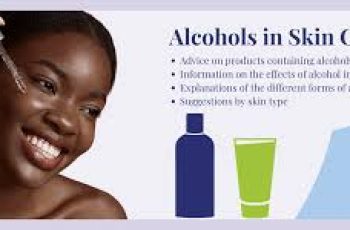
Is Salicylic Acid Good for Oily Hair?
I know what you’re thinking right now? Salicylic acid is a powerful ingredient that’s found in your favorite skincare products, but not in haircare products. But believe it or not, when it comes to hair, the scalp is almost always forgotten. This is a shame, of course, because the roots of the hair follicles determine the overall health of your hair, and taking time to care for your scalp and split ends should be one of our top priorities. So, we decided to focus on today’s topic, as salicylic acid is surprisingly found in many shampoo formulas, especially those designed to combat oily hair and dandruff issues.
Salicylic acid is beneficial for the health of your hair and scalp because it exfoliates the skin and sloughs off dead skin cells. This happens not only on the face, but also on the scalp, as salicylic acid breaks down the attachment of dead skin cells to the outer surface. These cells are the cause of dandruff and other flakes. You may find that salicylic acid provides relief, but be careful: if you have a dry or sensitive scalp, it’s best to avoid salicylic acid altogether. Now that you understand how salicylic acid works on your hair, let’s take a closer look at whether salicylic acid is good for oily hair.
Does salicylic acid help with oily hair?
Yes, it absolutely does! Salicylic acid can help improve oily hair in a variety of ways. Here are some of the key benefits of using a smart BHA on your scalp and hair.
Salicylic acid can penetrate your scalp
Since salicylic acid is oil-soluble, it can penetrate deep into the skin and remove layers of dead skin cells to reveal a layer of healthy skin cells underneath. You’ll find your scalp feels more comfortable, but it’s best to avoid using high levels of salicylic acid at first, as it can overly dry out the scalp. Instead, work your way up to your skin’s tolerance for an effective BHA.
Salicylic acid can reduce dandruff
Dandruff often occurs when a layer of dead skin cells on the scalp is left untreated. This can cause an itchy and flaky scalp, and in some extreme cases, can lead to hair breakage. The introduction of hair care products with low salicylic acid content not only stimulates the exfoliation of the scalp, but also treats dandruff at the same time.
These are some of the main benefits of using salicylic acid for oily hair, but if you find that salicylic acid is too strong for your scalp, don’t hesitate to ask your hairdresser for alternatives.
Does salicylic acid damage your hair?
Not really. As effective as salicylic acid is for your skin, you’ll find it to be a completely safe addition to your hair care routine. You’ll find that it effectively removes dry skin from your scalp, reducing signs of dandruff and any irritation or itching caused by this condition. Salicylic acid is also paraben-free, meaning it won’t balance or damage your scalp or hair follicles, making it an easy and effective addition to your daily hair care routine. In fact, after a few weeks of using salicylic acid, you may notice an improvement in hair growth as well, proving that salicylic acid or its natural alternative, willow bark, won’t damage your hair.
Which ingredients are bad for oily hair?
The key ingredients to avoid when dealing with oily hair, or any other type of hair, are as follows.
Sodium Lauryl Sulfate (SLS)
Sodium Laureth Sulfate
Formaldehyde
Parabens
Diethanolamine (DEA)
Triethanolamine (TEA)
Monoethanolamine (MEA)
Propylene glycol
Synthetic fragrance
If you use traditional shampoo and conditioner, you will find it difficult to avoid the ingredients listed above. However, nowadays more than ever, natural shampoos are available in liquid or solid form. As they grow in popularity, many people are benefiting from beautiful curls without harmful chemicals.
Does Salicylic Acid Cleanse Hair?
Yes, as effective as exfoliating BHA is at treating blemishes and keeping skin clear, it can also keep hair healthy and prevent dandruff. It does this by breaking down the bonds of dead skin cells on the surface of the skin and forming a residue. In this residue, you will also find excess sebum, the skin’s natural oil, and if left untreated, the accumulation of sebum can cause the roots of hair to become greasy and difficult to style. In some cases, it can also cause acne on the scalp, also known as folliculitis.
Is Salicylic Acid Bad for the Scalp?
Not at all. In fact, using salicylic acid is very beneficial for your scalp, as its exfoliating properties keep it clean. Healthy, and any signs of dandruff are significantly reduced. Before you run out and buy any hair products you can find that contain salicylic acid, remember to consider the health of your scalp. If it is too dry, it will be too sensitive to the use of BHA, and instead have side effects such as itching, dryness, and flaking. Always consult your doctor before using new products in your daily life.
What should I do if my hair is oily?
There are some simple ways to effectively treat oily hair without causing too many problems. If your hair is oily, here are some examples of home treatments you can try.
Use products formulated specifically for oily hair.
These include salicylic acid or its alternative willow bark, which you now know can effectively treat oily hair and keep your hair clean.
Wash your hair less often
It may be hell for people with oily hair, but washing too often will wash away all the oil from your hair. This will only create more oil, creating a vicious cycle.
Rinse your hair thoroughly
Residue from hair care products means that just washed hair will not stay fresh for long. Always rinse your hair thoroughly to allow more time between washes.
Don’t touch it too often
If you have oily hair, you should try to minimize twirling your hair as this will only make the problem worse, as touching or even combing your hair can stimulate the sebaceous glands and draw excess oil into the hair itself.
Here’s a sneak peek at how this popular skincare product can also be an effective hair treatment. If you want to learn more about salicylic acid and how it works, read our dedicated blog post. Don’t forget to visit us on Instagram if you have any other questions, we can’t wait to hear from you!


